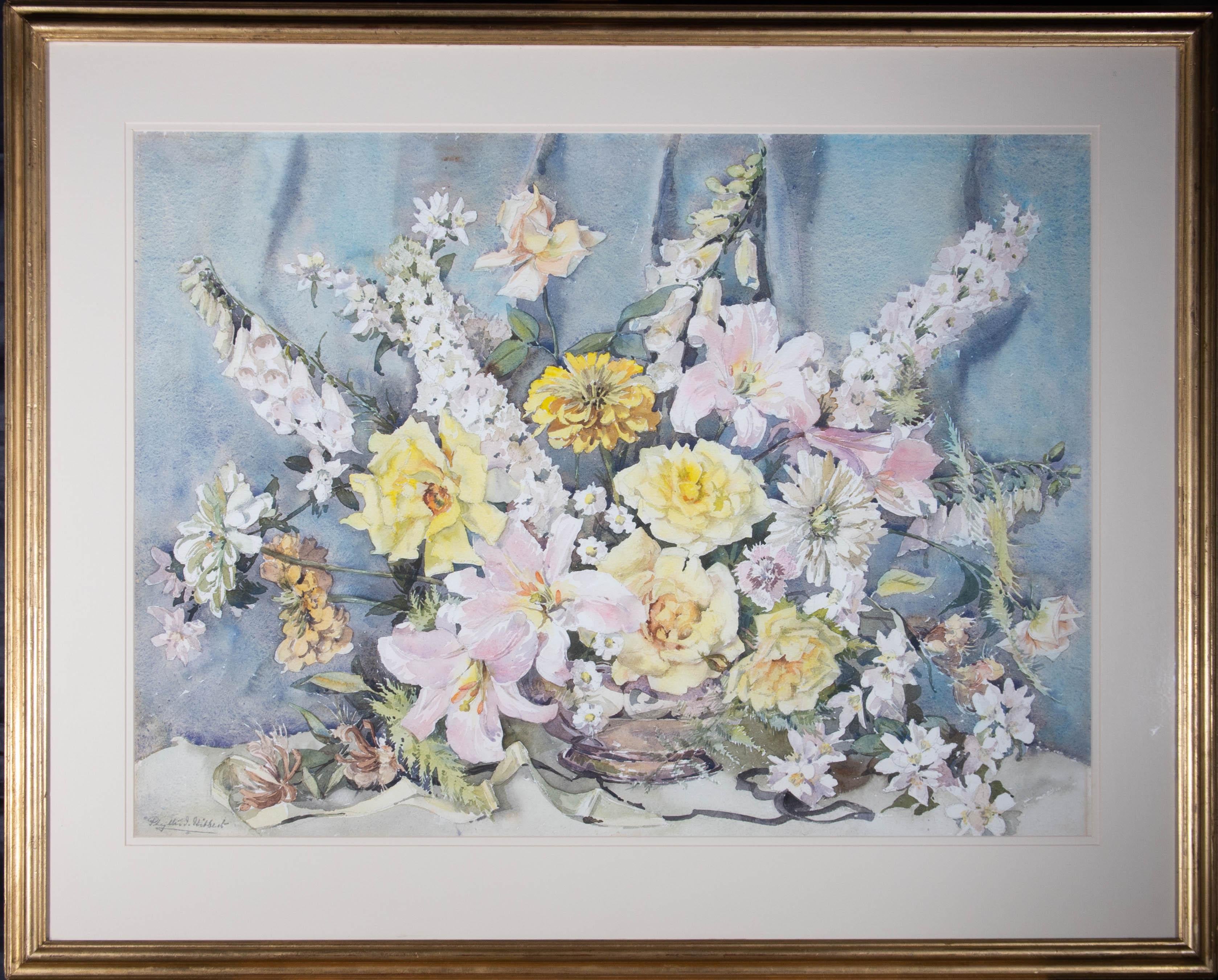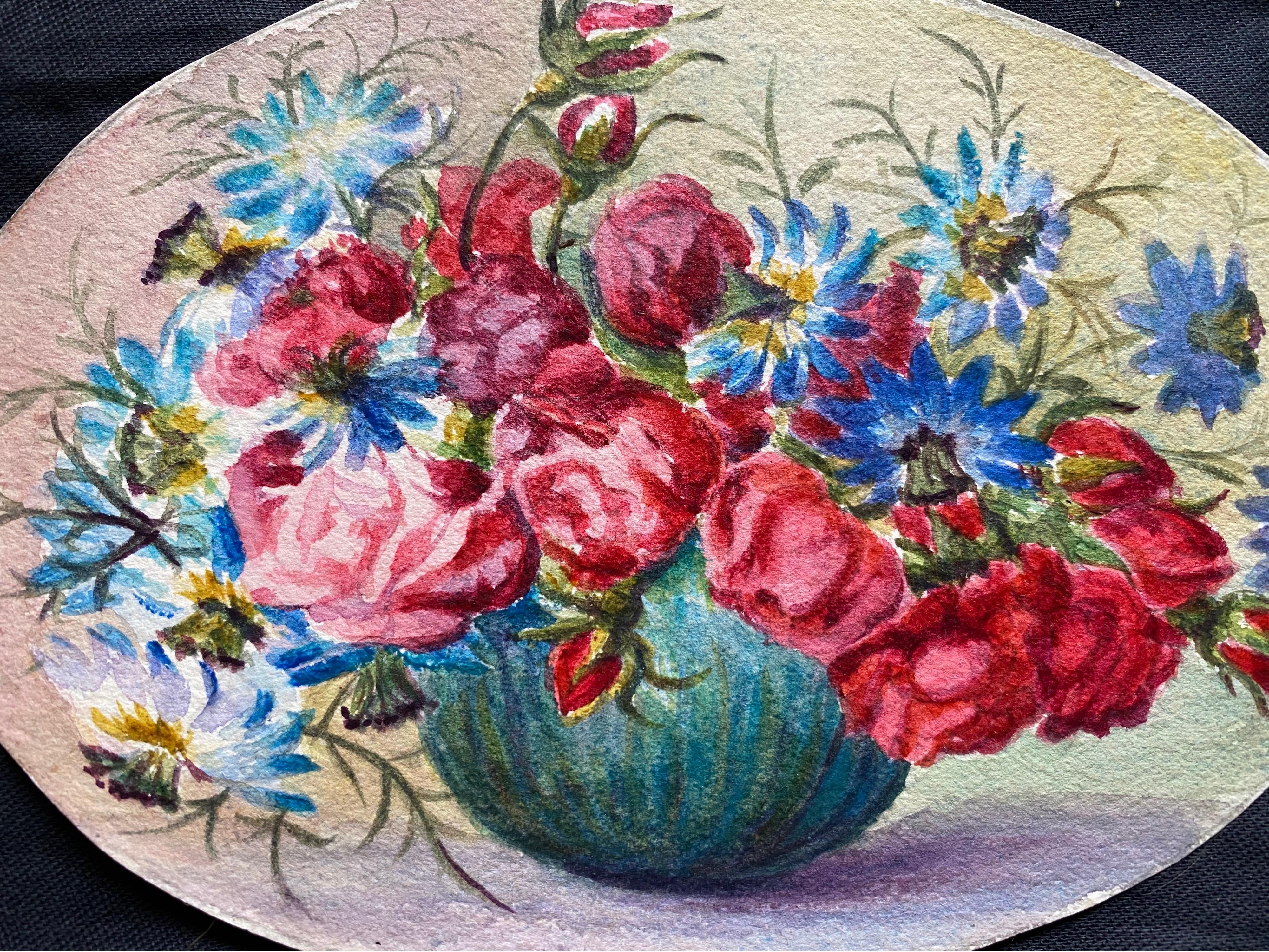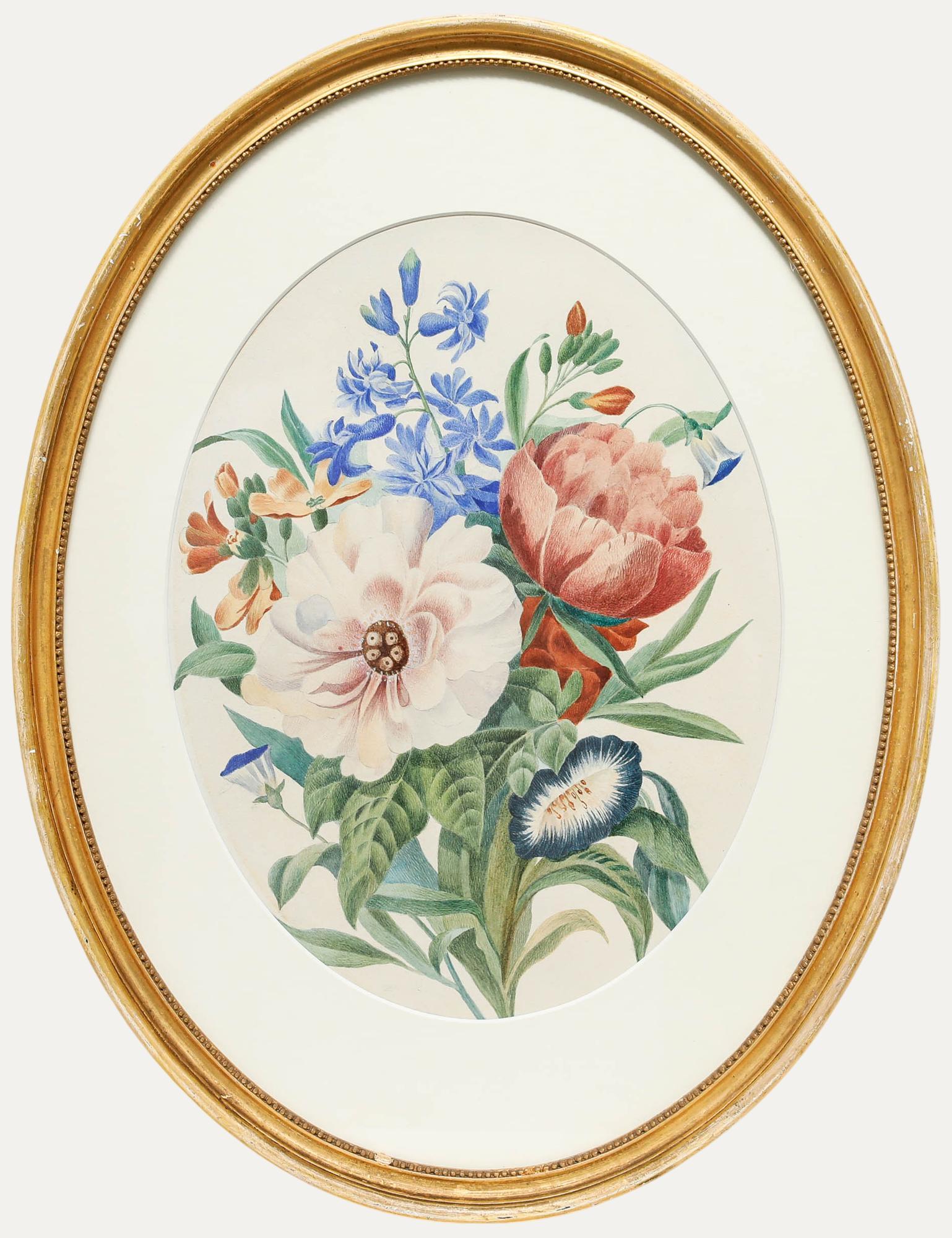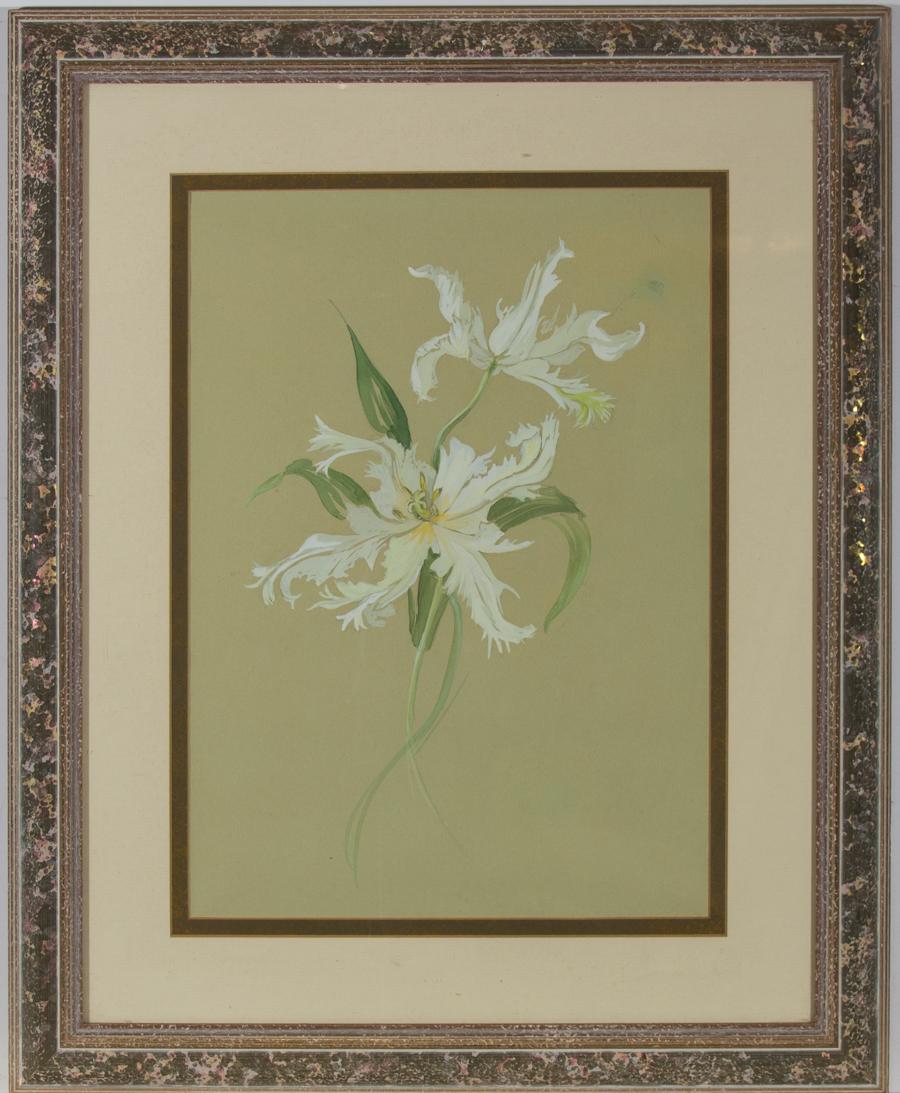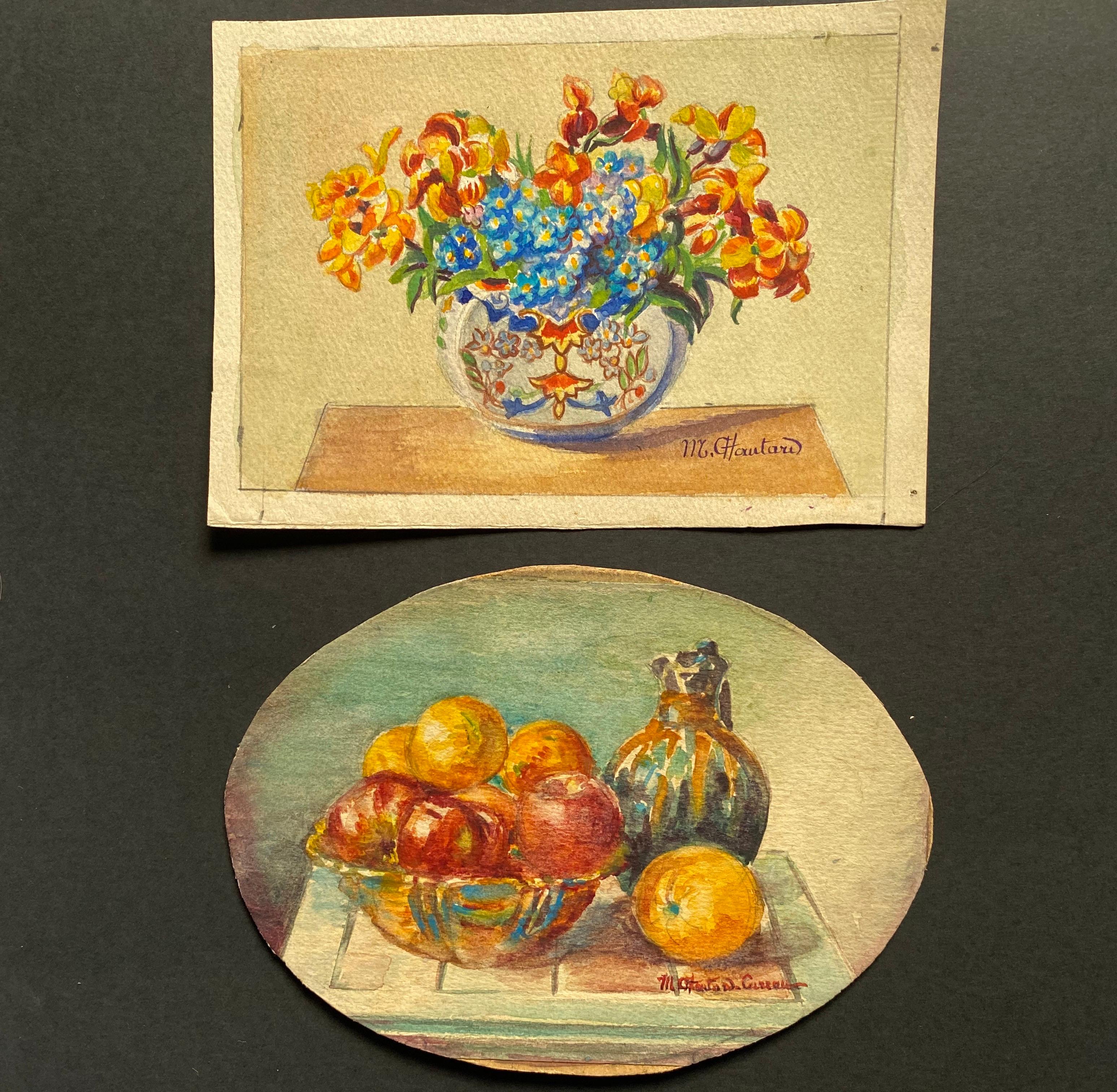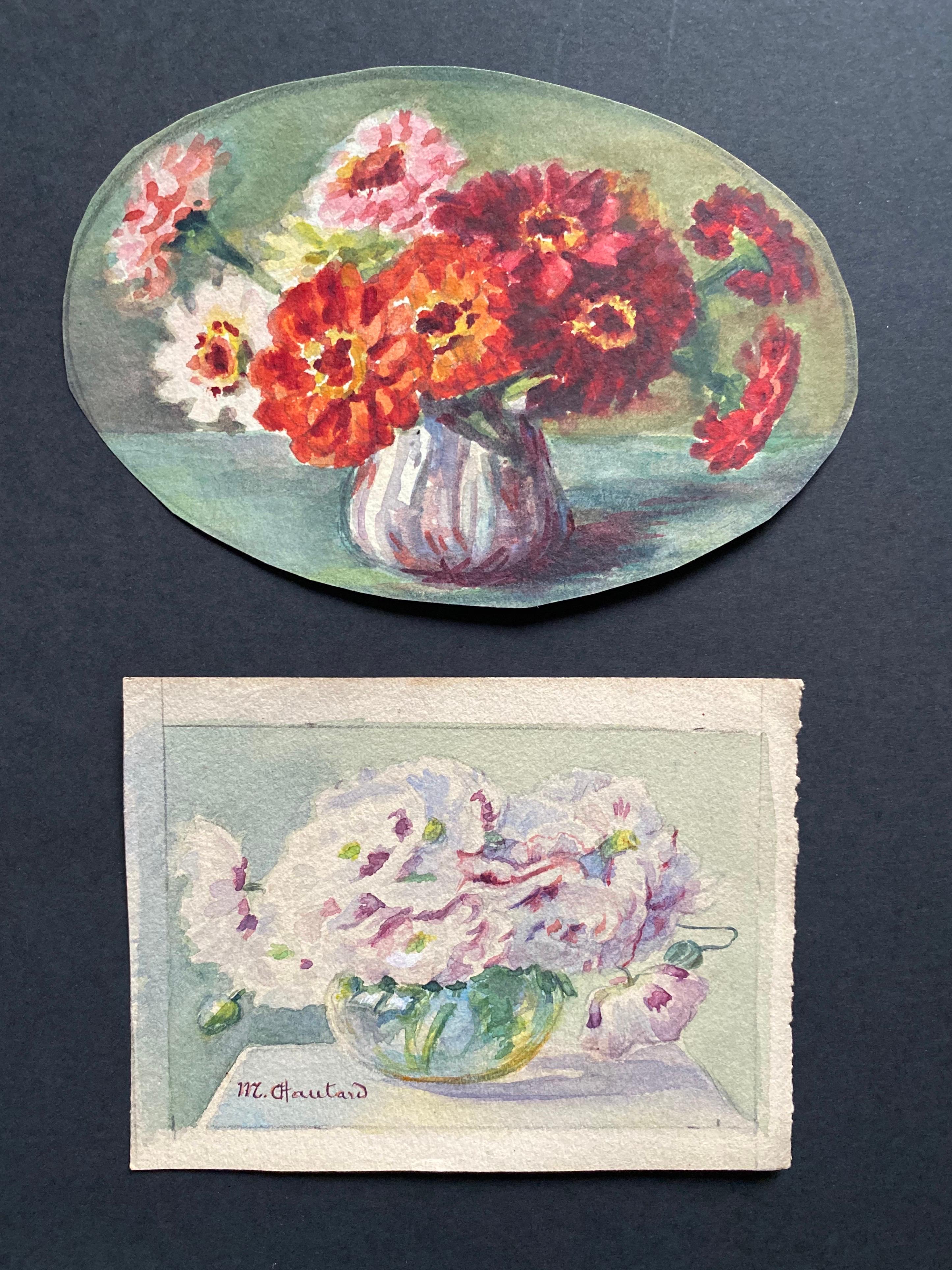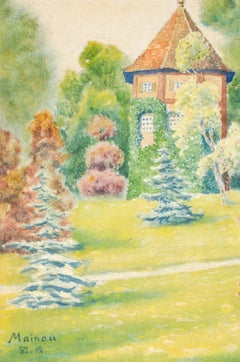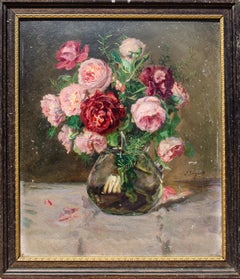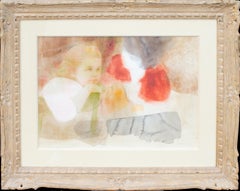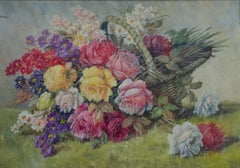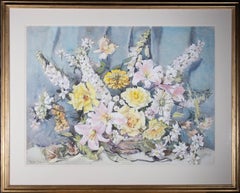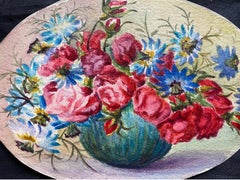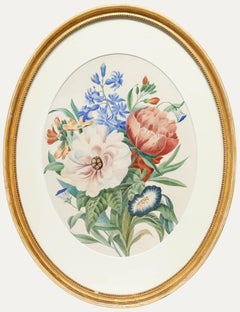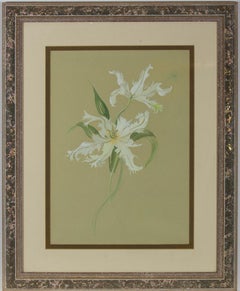Items Similar to c. 1920 Otto Münch Watercolor Flower Study
Want more images or videos?
Request additional images or videos from the seller
1 of 9
Otto Munchc. 1920 Otto Münch Watercolor Flower Studyc. 1920
c. 1920
$1,200
£911.02
€1,042.01
CA$1,676.57
A$1,864.72
CHF 973.70
MX$22,691.61
NOK 12,435.60
SEK 11,662.39
DKK 7,776.93
Shipping
Retrieving quote...The 1stDibs Promise:
Authenticity Guarantee,
Money-Back Guarantee,
24-Hour Cancellation
About the Item
Otto Münch (German-American, 1885-1965)
Design for Teacups, c. 1920
Watercolor on paper
9 1/8 in. diameter
Frame: 16 7/8 x 16 7/8 x 1 in.
Provenance:
Chamberlin Gallery, New York
Otto Münch (1885–1965) was a German artist.
The bronze doors of the Grossmünster in Zürich, Switzerland, are considered to be his most important work. The reliefs on the south portal, showing Reformation scenes and other images of the history of the Grossmünster, were created in 1935–1938. The ones on the north portal, showing Biblical scenes, were finished in 1950. (Bio from Wikipedia)
The present watercolor are proposed tea cup designs executed by Münch around 1920.
- Creator:Otto Munch (1885 - 1965, German)
- Creation Year:c. 1920
- Dimensions:Height: 16.875 in (42.87 cm)Width: 16.875 in (42.87 cm)Depth: 1 in (2.54 cm)
- Medium:
- Movement & Style:
- Period:
- Condition:Frame needs cleaning; not examined outside of the frame.
- Gallery Location:New York, NY
- Reference Number:Seller: BM51stDibs: LU2211213386212
About the Seller
5.0
Platinum Seller
Premium sellers with a 4.7+ rating and 24-hour response times
1stDibs seller since 2022
81 sales on 1stDibs
Typical response time: 2 hours
- ShippingRetrieving quote...Shipping from: West Babylon, NY
- Return Policy
Authenticity Guarantee
In the unlikely event there’s an issue with an item’s authenticity, contact us within 1 year for a full refund. DetailsMoney-Back Guarantee
If your item is not as described, is damaged in transit, or does not arrive, contact us within 7 days for a full refund. Details24-Hour Cancellation
You have a 24-hour grace period in which to reconsider your purchase, with no questions asked.Vetted Professional Sellers
Our world-class sellers must adhere to strict standards for service and quality, maintaining the integrity of our listings.Price-Match Guarantee
If you find that a seller listed the same item for a lower price elsewhere, we’ll match it.Trusted Global Delivery
Our best-in-class carrier network provides specialized shipping options worldwide, including custom delivery.More From This Seller
View AllFlower Island of Mainau Watercolor, 19th Century
Located in New York, NY
Mainau, 19th Century
Watercolor on paper
7 1/4 x 5 1/8 in.
Mat: 11 x 8 3/4 in.
Inscribed lower left: Mainau IV.12
Inscription verso
Mainau is an island in Lake Constance (on the Sou...
Category
19th Century Impressionist Landscape Drawings and Watercolors
Materials
Paper, Watercolor
Viennese Impressionist Josef Jungwirth Rose Still Life, 1921
Located in New York, NY
Josef Jungwirth (Austrian, 1869-1950)
Sclien, 1921
Oil on wood panel
19 x 16 1/8 in.
Framed: 21 3/4 x 18 3/4 x 7/8 in.
Signed, dated, and inscribed lower right: J. Jungwirth, Sclien,...
Category
1920s Impressionist Still-life Paintings
Materials
Oil, Wood Panel
Angelic Ruth Cobb Watercolor, Signed
Located in New York, NY
Ruth Cobb (American, 1914-2008)
Untitled, c. 20th century
Watercolor and mixed media on paper
Sight: 19 3/4 x 28 1/2 in.
Framed: 33 1/2 x 41 3/4 x 1 3/4 in.
Signed lower right
Born ...
Category
20th Century American Impressionist Figurative Drawings and Watercolors
Materials
Paper, Mixed Media, Watercolor
20th Century Floral Still Life by Mystery Artist
Located in New York, NY
Mystery Artist
Untitled (floral still life), c. 20th Century
Oil (?) on canvas board
Sight: 14 3/4 x 20 1/2 in.
Framed: 20 1/2 x 26 1/3 x 1 in.
Category
20th Century American Impressionist Still-life Paintings
Materials
Canvas, Oil, Board
Stein am Rhine, 1912 German Watercolor
Located in New York, NY
Stein am Rhine, 1912
Watercolor on paper
7 x 5 in.
Mat: 10 3/4 x 8 3/4 in.
Inscribed lower right: Stein a/Rh, Juni 1912
At the point where Lake Constance again becomes the Rhine River, you will find the little town...
Category
1910s Impressionist Landscape Drawings and Watercolors
Materials
Paper, Watercolor
Lovely Watercolor Panels by Japanese Woman Artist Eiko Kahn
Located in New York, NY
Eiko Taniguchi Kahn (b. 1929)
Untitled, c. 1960s
Watercolor on board
Each panel: 33 x 11 in.
Framed: 45 1/2 x 32 x 1 in.
Each panel signed bottom
These stunning watercolor panels are beautifully mounted in a period frame. The frame needs some minor restoration but this would be a worthy repair, as it matches the artwork so nicely.
Eiko Taniguchi Kahn was Japanese Artist who was born on January 24, 1929 in Fukuoka, Kyushu, Japan, to Tosuke Yamashita and Masano Taniguchi. She came to the United States in 1955, and was naturalized in 1958. She was the recipient of the President's award at the National Arts...
Category
1960s Abstract Impressionist Abstract Drawings and Watercolors
Materials
Watercolor, Board
You May Also Like
Phyllis I. Hibbert (b.1903) - Early 20th Century Watercolour, Mixed Flowers
Located in Corsham, GB
This large study of a display of flowers incorporates lilies, roses, foxgloves, hyacinths and honeysuckle among other pretty flowers. The artist's delicate touch has created a harmon...
Category
20th Century Still-life Drawings and Watercolors
Materials
Watercolor
Early 1900's French Impressionist Signed Flower Watercolour by Marie Carreau
Located in Cirencester, Gloucestershire
"Flowers"
by Marie-Amelie Chautard-Carreau (French, 19th/20th century)
watercolour on paper, unframed
painting: 4.25 x 6 inches
Delightful early 20th century French watercolour dep...
Category
Early 20th Century Impressionist Still-life Paintings
Materials
Watercolor
Fine 19th Century Watercolour - Summer Bouquet
Located in Corsham, GB
A charming botanical study depicting an abundant bouquet of summer flowers. The artist captures the flowers in fine detail, using vibrant colours and delicate brushwork to capture th...
Category
19th Century Still-life Drawings and Watercolors
Materials
Watercolor
Mid 20th Century Watercolour - Floral Study
Located in Corsham, GB
A charming watercolour with white body colour of a floral study. Well presented in a mount and patterned frame. Unsigned. On wove.
Category
Mid-20th Century Still-life Drawings and Watercolors
Materials
Watercolor
$288 Sale Price
20% Off
Early 1900's French Impressionist Signed Flower Watercolours Marie Carreau
Located in Cirencester, Gloucestershire
"Flowers"
by Marie-Amelie Chautard-Carreau (French, 19th/20th century)
set of 2
Top watercolour on paper, unframed
Bottom watercolour on board, unframed
top painting : 5 x 7 inches,...
Category
Early 20th Century Impressionist Still-life Paintings
Materials
Watercolor
Early 1900's French Impressionist Signed Flower Watercolours Marie Carreau
Located in Cirencester, Gloucestershire
"Flowers"
by Marie-Amelie Chautard-Carreau (French, 19th/20th century)
set of 2
watercolour on paper, unframed
top painting : 3.5 x 5.5 inches, signed bottom right
bottom painting: ...
Category
Early 20th Century Impressionist Still-life Paintings
Materials
Watercolor
